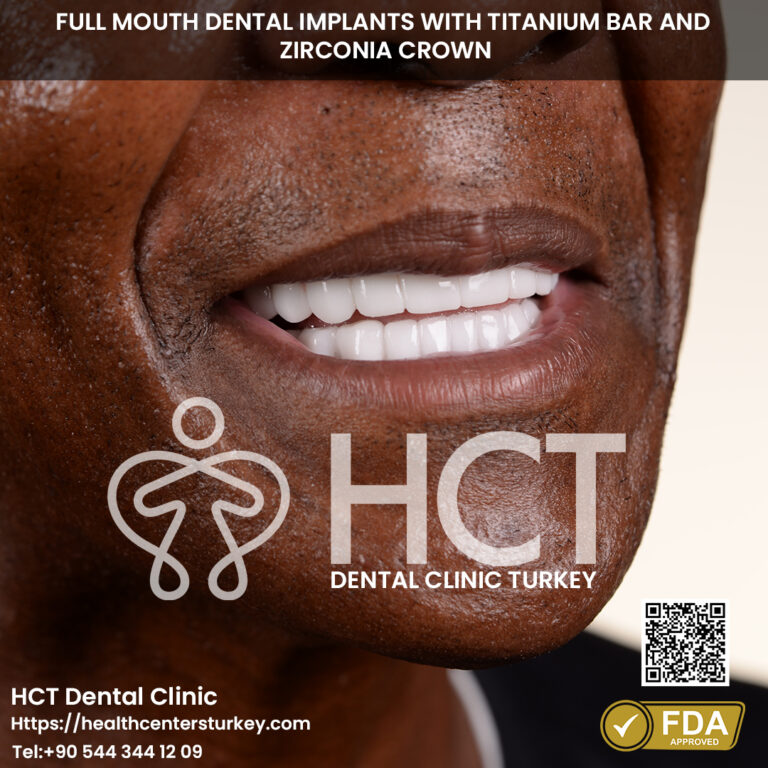Uncover Affordable Dental Treatments in Turkey
Uncover Affordable Dental Treatments in Turkey
Blog Article
Restore Your Oral Health with Advanced Dental Treatments in Turkey
Dental implants have turn out to be a preferred solution for these seeking to replace missing teeth. Understanding how these implants can affect adjacent teeth is essential for anyone considering this process, as well as for dentists and specialists involved in dental care.

One vital facet is that dental implants are designed to be anchored into the jawbone, which implies they are unbiased of adjacent teeth. Unlike dental bridges, which frequently require the alteration of neighboring teeth, implants can fill the hole without compromising the health or structure of those surrounding teeth.
This independence helps maintain the integrity of adjacent teeth. When a tooth is lost, there is normally a natural tendency for neighboring teeth to tilt or shift into the empty house. Such movement can result in misalignment, which can have an effect on chunk and overall oral health. By inserting an implant, you successfully prevent this potential shift, promoting better alignment in the long term.
Discover Affordable Dental Care Options for Crowns and More in Turkey
Additionally, dental implants help maintain bone density in the jaw. A natural tooth root supplies stimulation to the encompassing bone, maintaining it wholesome and strong. When a tooth is missing, the bone can start to deteriorate because of lack of stimulation. With a dental implant mimicking a natural root, bone loss may be minimized, which not directly benefits adjacent teeth by preserving the overall structure of the dental arch.
While dental implants are advantageous, improper placement can impression neighboring teeth. If an implant is positioned too close to another tooth, it may exert undue strain on that tooth, leading to discomfort or potential harm. Proper planning and imaging strategies are important for avoiding such points.
Comprehensive Dental Assessments in Antalya
Moreover, sustaining good oral hygiene is essential after receiving an implant. If not correctly cleaned, surrounding teeth may become vulnerable to dental issues such as decay or gum disease. This underscores the significance of diligent oral care following the procedure to make sure each implants and adjacent teeth remain healthy.
Regular dental check-ups are also very important for monitoring the health of surrounding teeth. Dentists can establish any shifts or potential problems early, allowing for well timed interventions. This proactive method ensures that each the implant and adjacent teeth can coexist without issues.
Life-Changing Dental Care Experiences for Foreign Patients
Another consideration is the impact of implants on chunk force. When a single tooth is missing, the load of chewing might shift to adjacent teeth, doubtlessly leading to wear or pressure. Implants restore correct bite dynamics by redistributing forces within the mouth, which might protect surrounding teeth from undue stress.
Some patients might elevate concerns concerning the appearance of dental implants. Well-placed implants can mix seamlessly with existing teeth, enhancing general aesthetics. In distinction, failing to replace a missing tooth can result in aesthetic issues, including collapsing of facial structure and changes in smile dynamics.
It's additionally worth discussing the psychological elements of dental health. Experiencing tooth loss can adversely affect one’s self-esteem and willingness to interact socially. By restoring your smile with implants, you presumably can positively influence not only your oral health but in addition your emotional well-being.
Long-term success of dental implants usually hinges on numerous components, including the patient's health, maintenance habits, and the standard of the initial procedure. If adjacent teeth are healthy and properly cared for, the likelihood is that they'll proceed to thrive alongside the implants.
Efficient Dental Solutions for Time-Conscious Visitors
In conclusion, dental implants play a crucial position in not just restoring individual smiles, but in preserving the health and structure of adjacent teeth. By stopping shifting, maintaining bone density, and Continue redistributing chew forces, implants can make positive that surrounding teeth stay in optimum condition. Proper placement, hygiene, and common dental visits can additional improve the advantages of dental implants, resulting in a healthier, extra assured smile for years to return.
- Dental implants might help preserve the alignment of adjacent teeth by providing a secure anchor, preventing adjacent teeth from shifting into the hole left by a missing tooth.
- The presence of an implant might stimulate bone development in the jaw, helping to protect the general structure and integrity of the adjacent teeth.
- Unlike conventional bridges, implants do not require alteration of surrounding teeth, thus preserving their power and anatomy.
- Implants can improve the distribution of chew forces evenly throughout the dental arch, lowering the stress on neighboring teeth throughout chewing.
- A well-integrated dental implant can decrease the chance of bone loss within the space surrounding adjacent teeth, contributing to their long-term health and stability.
- The aesthetics of adjacent teeth may be improved as a outcome of assist offered by implants, which may lead to better overall beauty outcomes.
- With correct placement, dental implants can prevent gum recession around adjacent teeth by maintaining adequate dental structure.
- Implants may help mitigate the risks of periodontal disease in close by teeth by promoting healthy gum tissue and offering a washable floor.
- Long-term success of dental implants can lead to improved oral hygiene routines, which in turn advantages the health of surrounding teeth.
- The improved practical ability of an implant can encourage patients to chew more successfully, thus growing saliva production and aiding in the safety of adjacent dental tissues.undefinedHow do dental implants have an result on adjacent teeth?
What are dental implants and how do they work together with adjacent teeth?undefinedDental implants are synthetic tooth roots which are surgically placed into the jawbone. They present a secure foundation for replacement teeth whereas making certain minimal disruption to adjacent teeth, preserving their integrity and alignment. Discover Best Dental Treatments in Turkey for Implants, Veneers, and More.
Comprehensive Oral Care for A Radiant Smile
Can dental implants cause problems for nearby natural teeth?undefinedGenerally, dental implants don't harm adjacent natural teeth. However, if the implant is not positioned appropriately or if there’s inadequate oral hygiene, it could result in complications such as adjacent tooth decay or gum disease.

Will getting a dental implant change the way in which my adjacent teeth feel?undefinedMost patients report no change in the sensation of adjacent teeth after implant placement. However, it could take a while to regulate to the presence of the implant, much like how one could adapt to different dental restorations.
Can dental implants assist protect the health of adjacent teeth?undefinedYes, dental implants might help keep the health of adjacent teeth by preventing bone loss that can occur after tooth loss. This preservation helps the alignment of close by teeth, lowering the danger of shifting or misalignment.
Full-Service Dental Solutions in Turkey for a Beautiful Smile
Do I need to change adjacent teeth when getting an implant?undefinedTypically, adjacent teeth don't need alteration when putting an implant. This click to read more is among the advantages of dental implants over conventional bridges, which regularly require reshaping adjacent teeth for assist.
How does the therapeutic means of an implant affect nearby teeth?undefinedThe therapeutic course of includes osseointegration, where the implant fuses with the jawbone. During this time, adjacent teeth remain unaffected and retain their operate, although it’s essential to follow post-operative care suggestions. Why Turkey is a Top Destination for Dental Treatments.
Enhancing Patient Experience in Turkish Dental Clinics
Can dental implants result in bone loss round adjacent teeth?undefinedIf dental implants are placed correctly and cared for adequately, they should not result in bone loss around adjacent teeth. In truth, they can help stimulate bone growth, combating the natural bone loss that often follows tooth extraction.
What precautions ought to I take to guard adjacent teeth after getting an implant?undefinedRoutine dental hygiene, including brushing and flossing, together with common dental check-ups, is essential. Avoiding onerous foods and following your dentist’s aftercare instructions may also protect both the implant and adjacent teeth.
Is it common for adjacent teeth to shift after an implant is placed?undefinedIt's not typical for adjacent teeth to shift after an implant placement, particularly when the implant is positioned correctly and maintained correctly. If there’s any movement, it could be because of other underlying points that ought to be evaluated by a dental skilled. Report this page